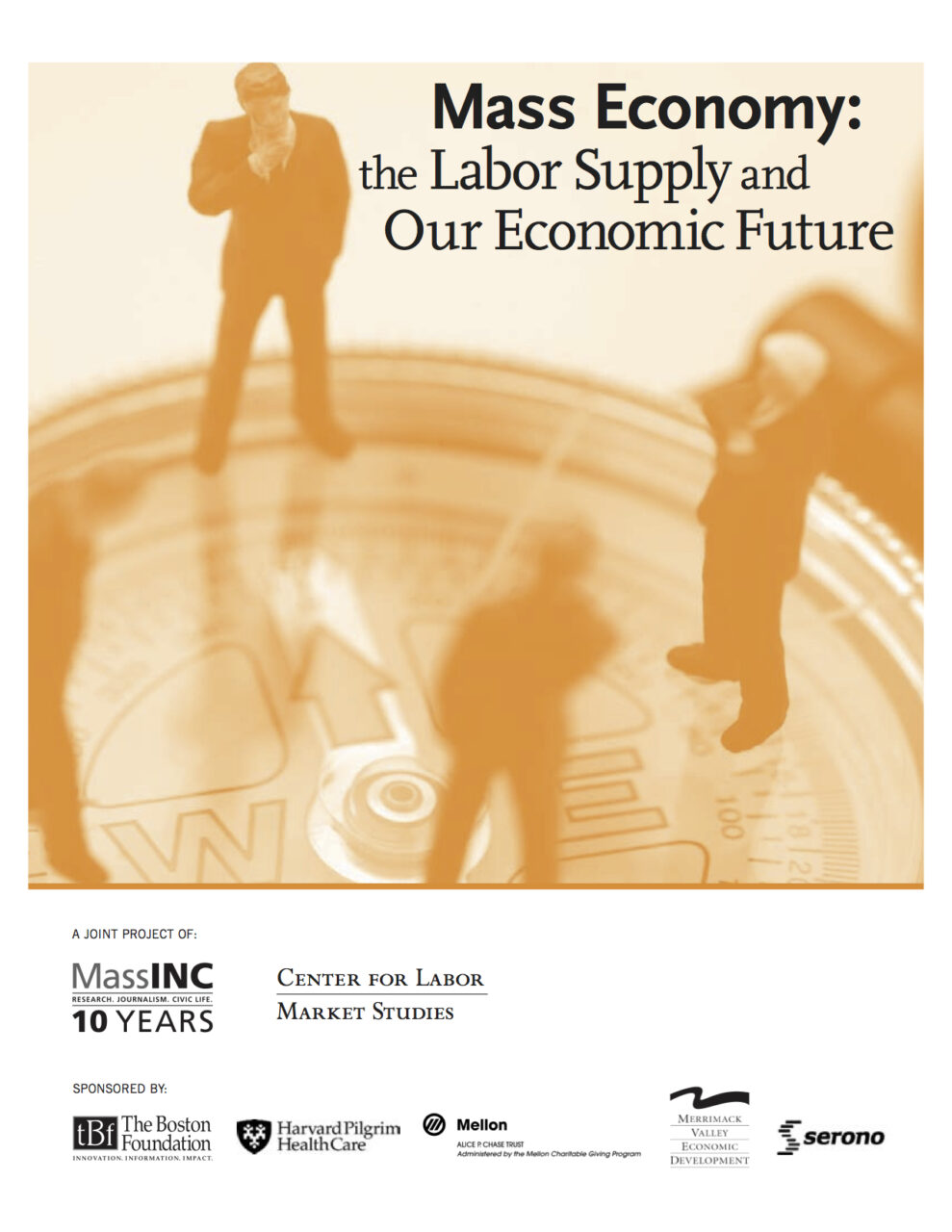This research assesses the health of the state’s supply of labor, both now and into the future. A key question is whether the state has an adequate supply of qualified workers to fuel our next round of economic expansion. In recent years, when the national economy began to recover from the recession of 2001, the US labor force expanded, as would be expected. The Massachusetts labor force has not grown at all since 2000, even though the state started adding jobs in 2004. In sharp contrast, labor forces in all other New England states have expanded in recent years.
The state’s stalled labor force is a result of two very different trends. The first is the continuing out-migration that our state has faced in recent years. Since 2000, more than 200,000 people, on net, have left the Bay State. Relative to our state’s population, this level of out-migration is the 2nd highest in the nation, trailing only New York. As other MassINC research has documented, out-migrants tend to be young, well-educated managers and professionals who work in the knowledge economy. The challenge for policymakers is twofold. Strategies to boost job creation are central to stem the future flow of out-migrants. Policymakers should also make it as easy as possible for people to put down roots in our state, by paying particular attention to affordability and quality-of-life issues.
The second trend is declining participation rates. A large number of men, especially those with limited education, are neither working nor actively looking for work. From 1989 to 2005, the share of working-age men participating in the state’s labor force dropped from 77.7 percent to 72.8 percent. This decline occurred even during strong economic times, suggesting a structural mismatch between available jobs and willing workers. Good-paying jobs for those without college degrees or advanced skills have become considerably harder to find, and more so in our state than in other parts of the nation. A consequence of the New Economy appears to be men with limited education, but still in their prime working years, withdrawing from the labor force. Their withdrawal has contributed to steep declines in the earnings of men without advanced degrees and has also led to rising income inequality in the state. A comprehensive strategy to retrain people for the New Economy, preferably before they lose their jobs, is needed. The human, fiscal, and economic costs of not doing so are enormous.
The quality and quantity of the state’s workforce is key to the state’s future economic health. The loss of workers to other states and the withdrawal of prime-working-age men from the labor force have reduced the future economic competitiveness of the state and heightened economic inequality. The current state of Massachusetts’ labor supply does not have to be indicative of its future labor supply. The time to address these challenges is now, before we are faced with large numbers of job vacancies, threatening the economic vitality of the state.
